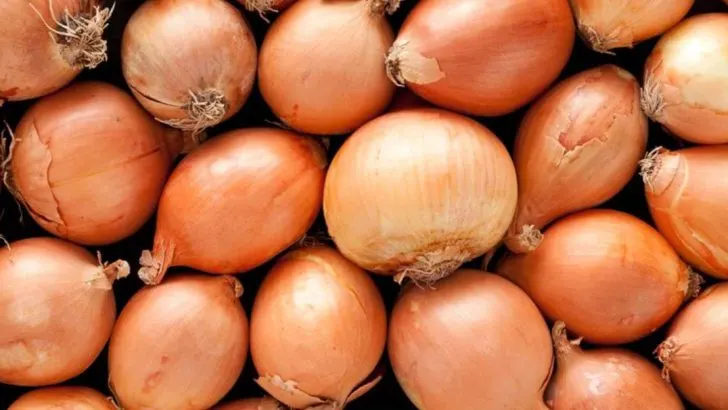Enhance your Brussels sprouts harvest with these 16 best companion plants! From pest-repelling herbs to nutrient-boosting vegetables, these plant pairings will help you grow healthier, more productive crops naturally.
Carrots
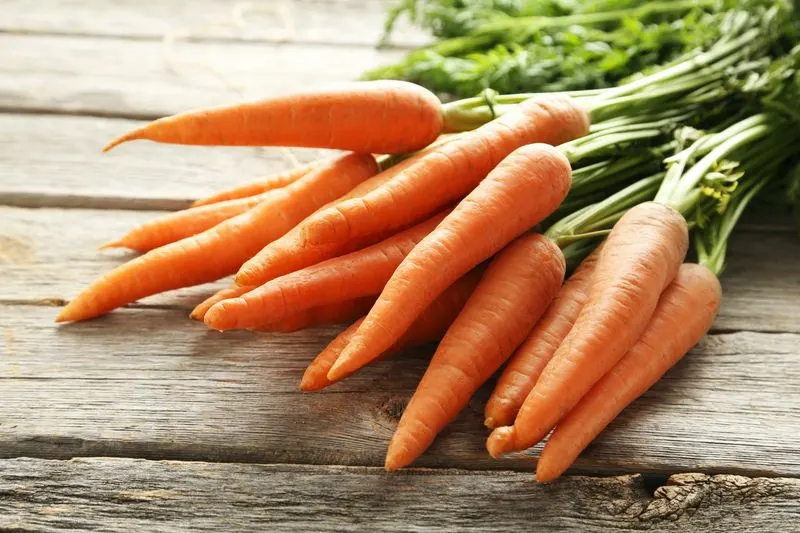
Enhancing the garden duo, carrots thrive alongside Brussels sprouts by optimizing root space. Nestled underground, carrots loosen soil, promoting better water and nutrient flow. This natural aeration benefits Brussels sprouts, encouraging robust growth. Carrots, with their minimal leaf coverage, allow more sunlight to reach the Brussels sprouts’ leaves, maximizing photosynthesis. This relationship not only benefits the plants but also optimizes garden space. Consider this pairing for an efficient and harmonious garden setting, where below and above ground, both crops flourish together.
Onions
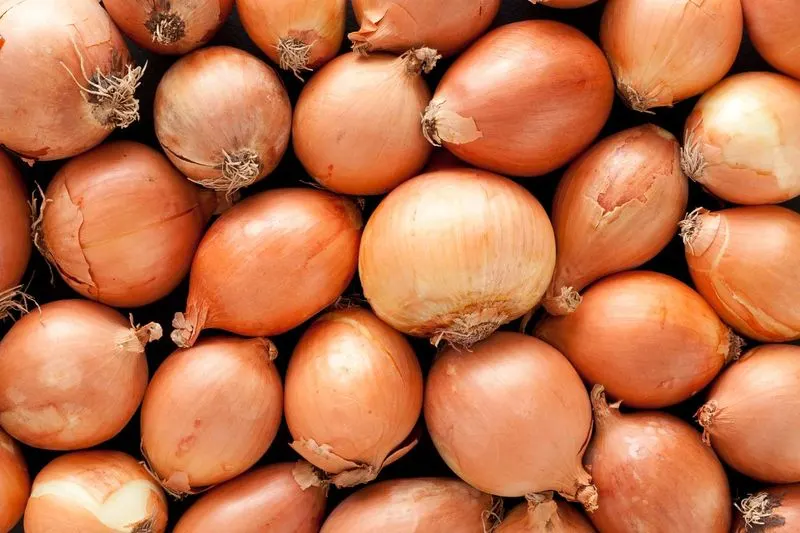
Aromatic onions can deter pests with their strong scent, making them excellent companions for Brussels sprouts. By planting onions, you create a natural barrier against potential threats like cabbage worms. This relationship is a mutual benefit, as onions grow tall without overshadowing the Brussels sprouts. Besides, their shallow root system does not compete aggressively for nutrients, allowing both plants to access the essentials. Including onions in your garden plan is a practical step towards a resilient and productive garden environment.
Spinach
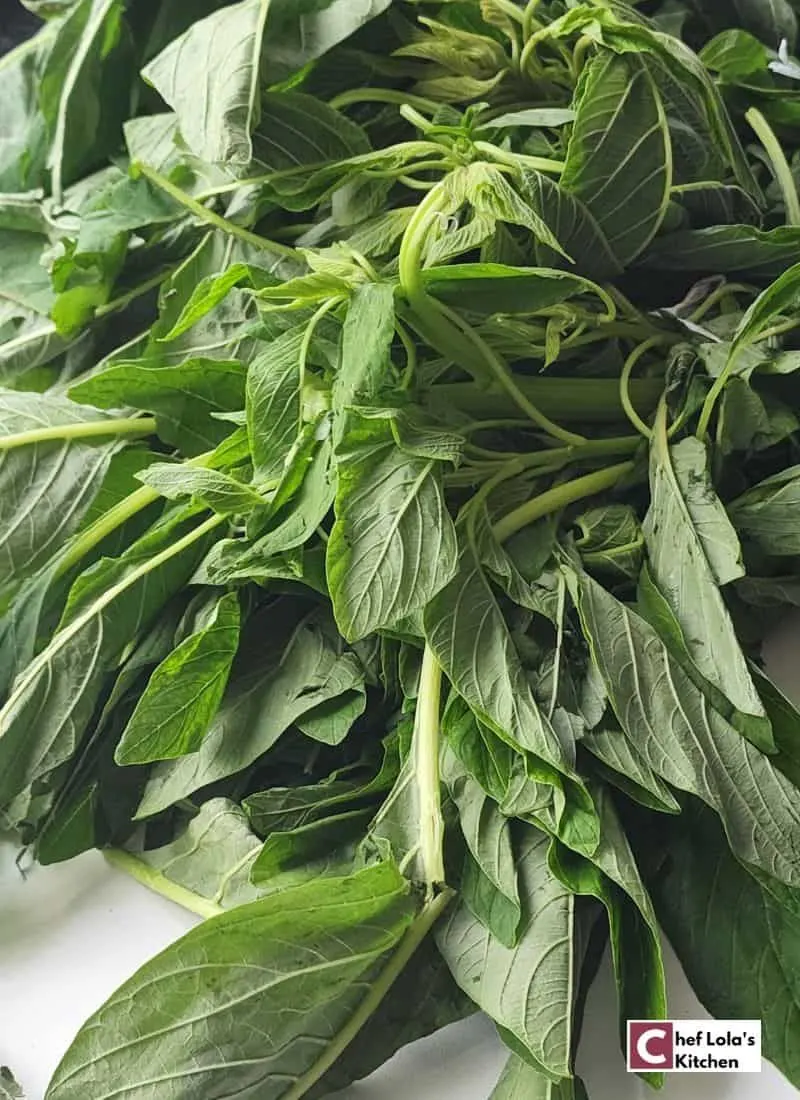
Spinach, with its low-growing profile, complements Brussels sprouts by providing ground cover. This cover reduces weeds, which compete for nutrients and water. Spinach thrives in similar conditions to Brussels sprouts, making them ideal partners. Additionally, the dense foliage of spinach retains soil moisture, creating a favorable microclimate. Harvesting spinach can be done earlier, allowing Brussels sprouts to continue maturing. This partnership not only conserves resources but also maximizes yield within the same garden area, showcasing an efficient use of space.
Chamomile
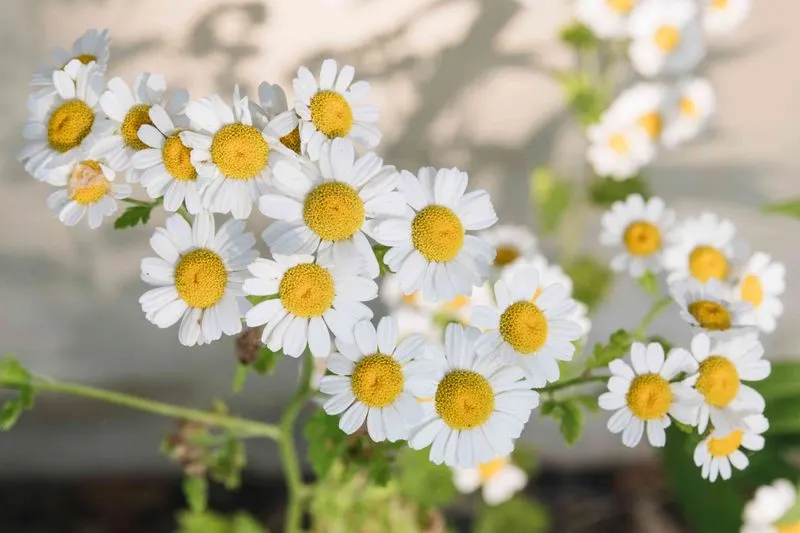
Chamomile brings a touch of tranquility and countless benefits to Brussels sprouts. Known for attracting beneficial insects like hoverflies, chamomile helps keep pest populations in check. Beyond its pest-deterring properties, chamomile improves the flavor and growth of Brussels sprouts through its beneficial compounds released into the soil. Its dainty flowers add visual appeal, making the garden a more pleasant place. Planting chamomile not only contributes to pest management but also enriches the garden experience with its gentle fragrance and beauty.
Lettuce
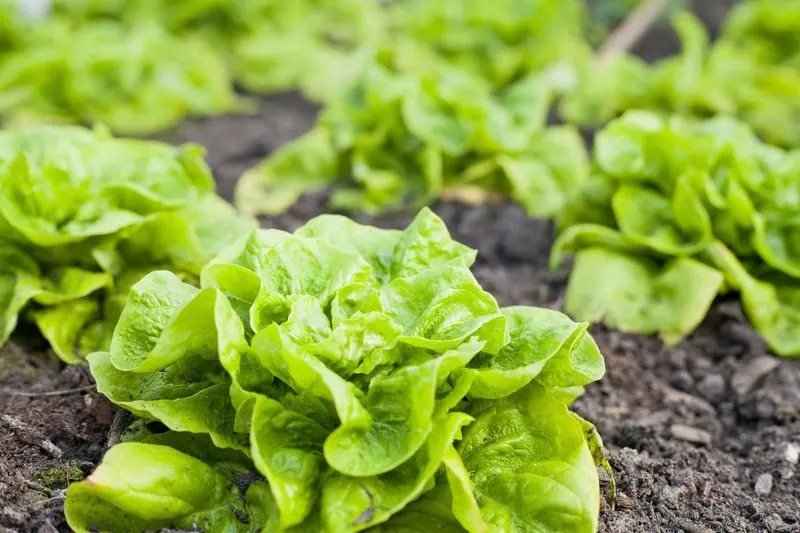
Lettuce, with its rapid growth cycle, fits perfectly alongside Brussels sprouts. As a cool-season crop, lettuce can be harvested before Brussels sprouts fully mature, freeing up space and resources. This timing allows gardeners to maximize their growing seasons efficiently. Moreover, lettuce acts as a living mulch, helping to suppress weeds and retain soil moisture. Its shallow roots avoid competition with Brussels sprouts, ensuring each plant’s needs are met. This combination offers both practical and aesthetic advantages for a well-rounded garden.
Thyme
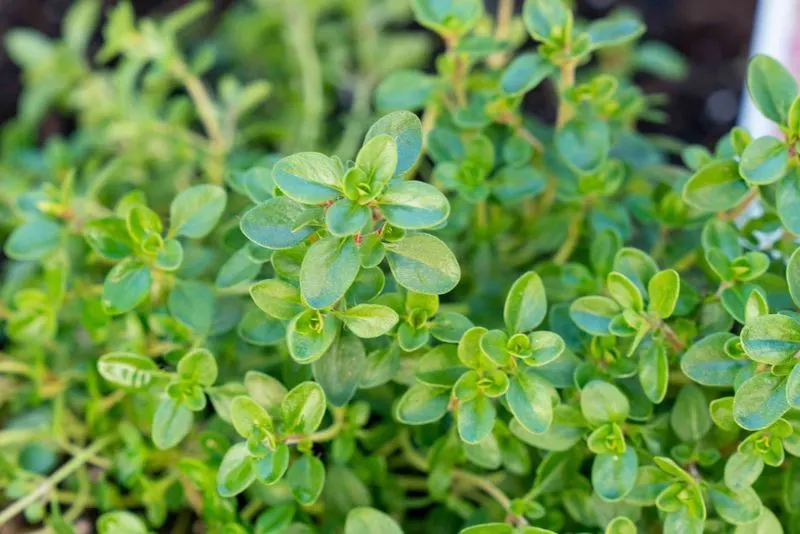
Thyme, a hardy herb, serves as a natural pest deterrent due to its aromatic oils. When planted near Brussels sprouts, thyme helps ward off harmful insects, reducing the incidence of pest attacks. The low-growing nature of thyme does not overshadow Brussels sprouts, ensuring they receive adequate sunlight. Additionally, thyme’s minimal water and nutrient requirements make it a non-competitive partner. Choosing thyme for companion planting not only aids in pest management but also adds aromatic and culinary value to the garden.
Borage
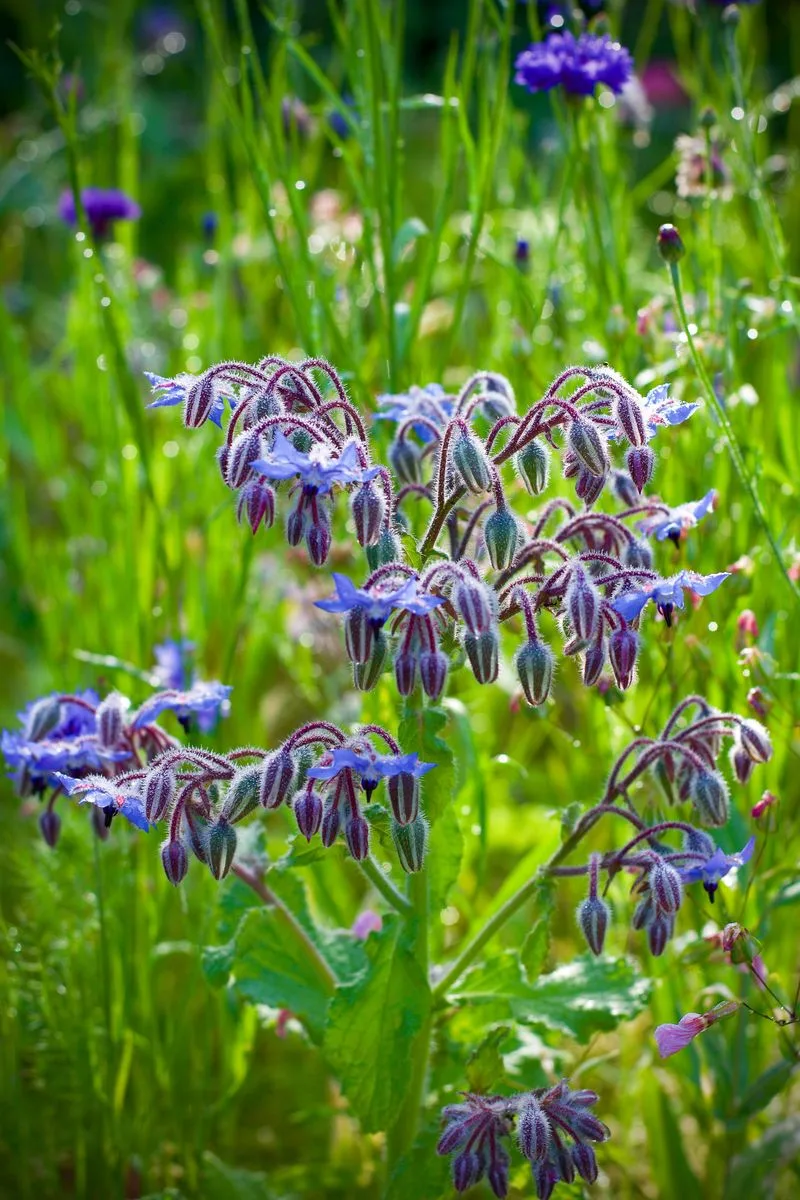
Unique with its star-shaped blue flowers, borage attracts pollinators like bees, enhancing the biodiversity of the garden. Its presence benefits Brussels sprouts by promoting pollination and reducing pest populations. Borage is known to improve soil quality, enriching it with essential nutrients that Brussels sprouts can access. Furthermore, its lush foliage can act as a natural mulch, conserving soil moisture and temperature. Incorporating borage into your garden not only supports the health of Brussels sprouts but also adds aesthetic and ecological value.
Beets
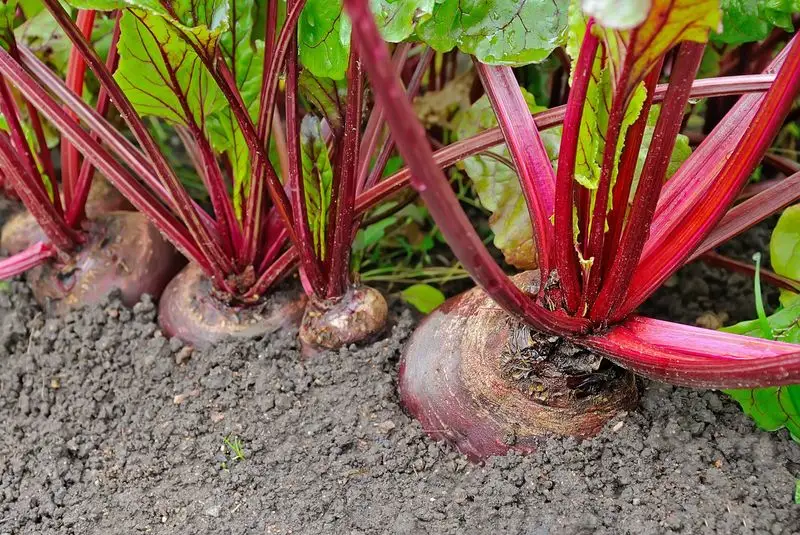
Beets, with their underground growth pattern, make efficient use of garden space when paired with Brussels sprouts. The deep roots of beets break up soil, enhancing aeration and water absorption. This benefits Brussels sprouts, whose roots can spread more easily through the improved soil structure. Moreover, beets’ vibrant color adds visual interest to the garden. By harvesting beets, you can make room for Brussels sprouts to thrive, ensuring a continuous cycle of growth. This synergy fosters a dynamic and productive garden environment.
Nasturtiums
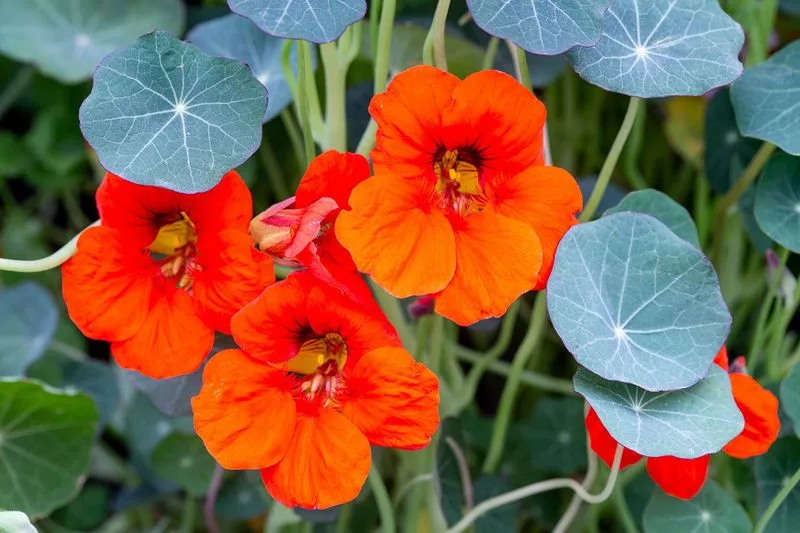
Nasturtiums not only bring a splash of color but also serve as a natural pest deterrent. Their vibrant flowers attract aphids away from Brussels sprouts, acting as a sacrificial plant. This diversion helps protect the Brussels sprouts while maintaining the garden’s visual appeal. Nasturtiums are easy to grow and can fill in gaps in the garden, offering a lush ground cover. Their trailing nature does not compete with Brussels sprouts for sunlight, ensuring both plants coexist harmoniously. This pairing enhances garden aesthetics and pest management.
Mint
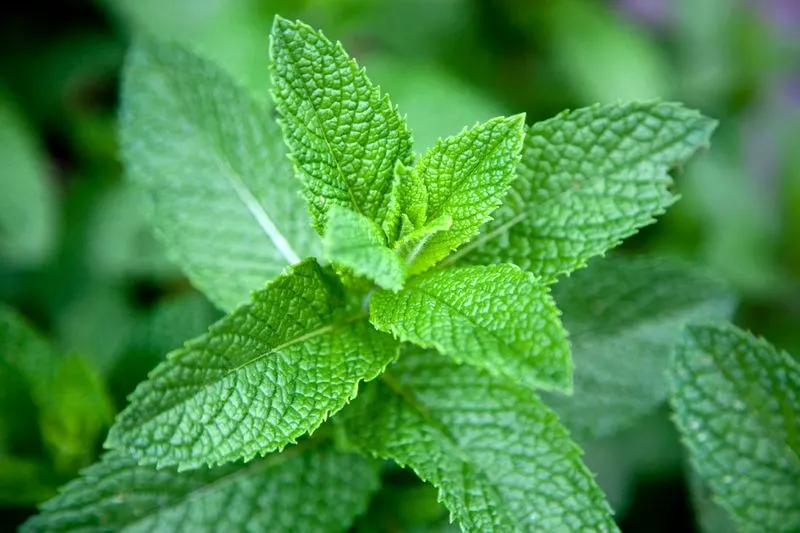
Mint, with its aromatic leaves, effectively deters insects, making it a valuable ally for Brussels sprouts. Its strong scent confuses pests, reducing the likelihood of infestations. Mint’s vigorous growth covers the ground, suppressing weeds and conserving moisture, which benefits Brussels sprouts. However, due to its invasive nature, mint should be planted in containers to prevent it from overtaking the garden. This companion planting not only aids in pest control but also provides fresh mint leaves for culinary use, adding both functional and flavorful elements to the garden.
Dill
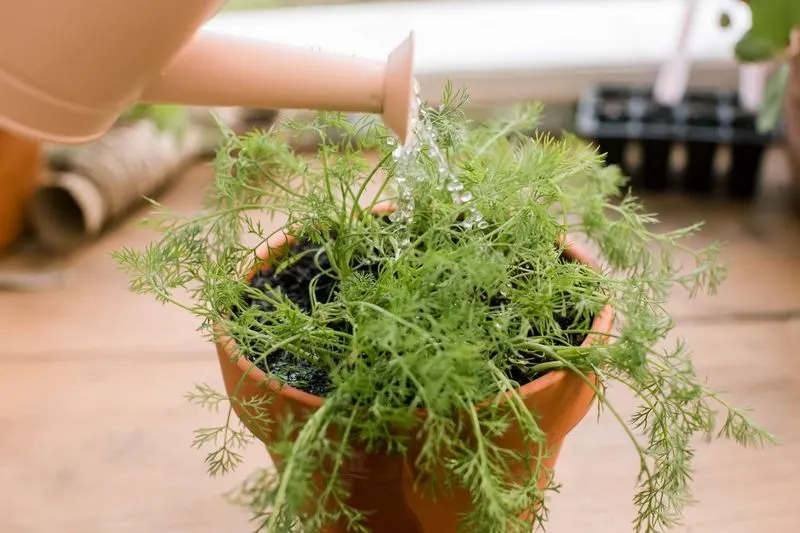
Dill offers dual benefits by attracting beneficial insects like ladybugs and predatory wasps while deterring pests harmful to Brussels sprouts. Its tall, feathery structure does not overshadow Brussels sprouts, allowing sufficient sunlight penetration. Dill thrives in similar growing conditions, making it an ideal partner in the garden. Moreover, its aromatic leaves add culinary value. By including dill, you enhance the garden’s biodiversity and resilience, ensuring a healthier environment for Brussels sprouts to flourish. This combination is both practical and aesthetically pleasing.
Garlic
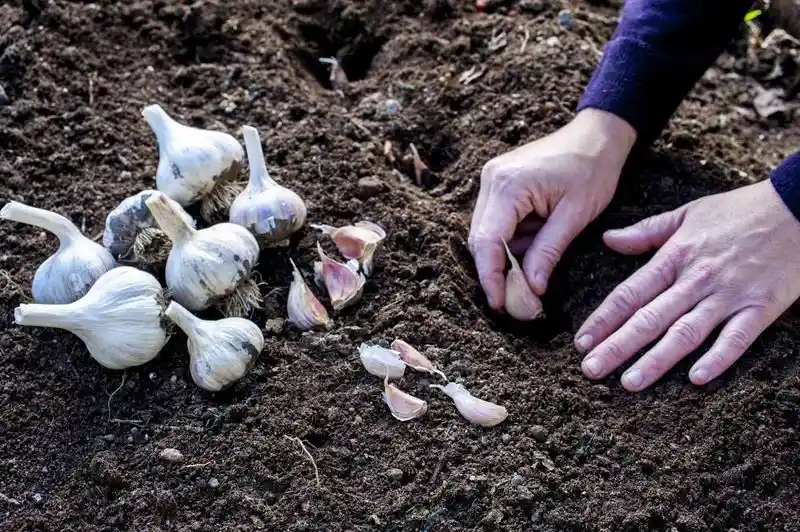
Garlic’s strong aroma serves as a natural pest repellent, safeguarding Brussels sprouts from potential threats. Its growth habit allows it to occupy minimal space, making it an efficient companion. Planting garlic near Brussels sprouts can reduce soil-borne diseases, enhancing overall plant health. The space-efficient nature of garlic, alongside its pest defenses, makes it an invaluable addition to the garden. This partnership not only supports plant health but also enriches the garden with culinary possibilities and natural pest control solutions.
Celery
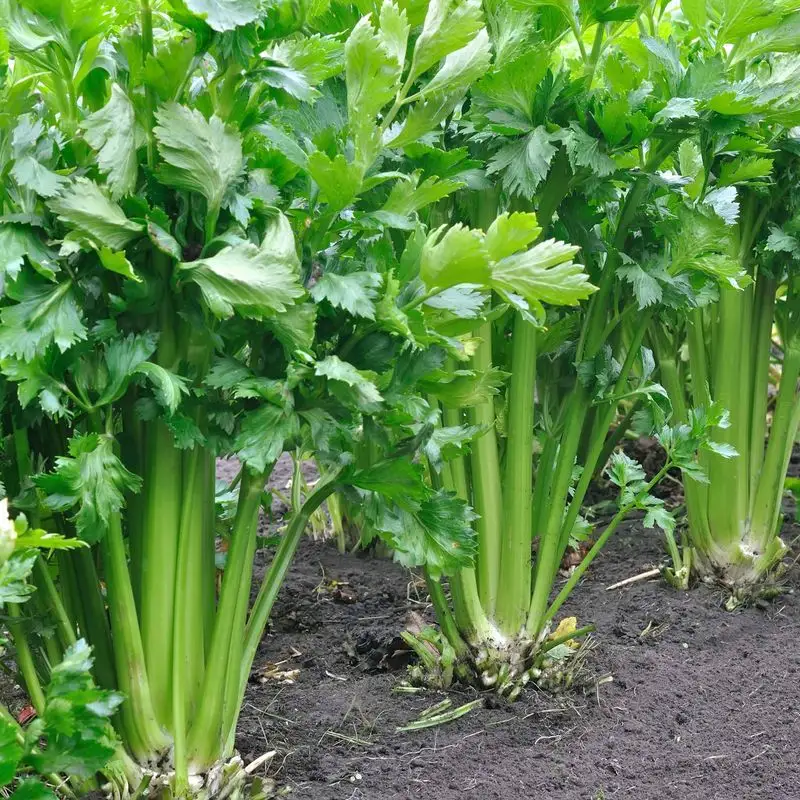
Celery’s tall, stalky growth complements the shorter stature of Brussels sprouts, optimizing vertical space in the garden. Celery benefits from the shade provided by Brussels sprouts, which can improve its flavor. Meanwhile, the aromatic nature of celery deters pests, creating a protective barrier for both plants. This mutually beneficial relationship promotes healthier growth for both crops, ensuring a bountiful harvest. Incorporating celery into your garden not only enhances structural diversity but also contributes to pest management and crop quality.
Peas
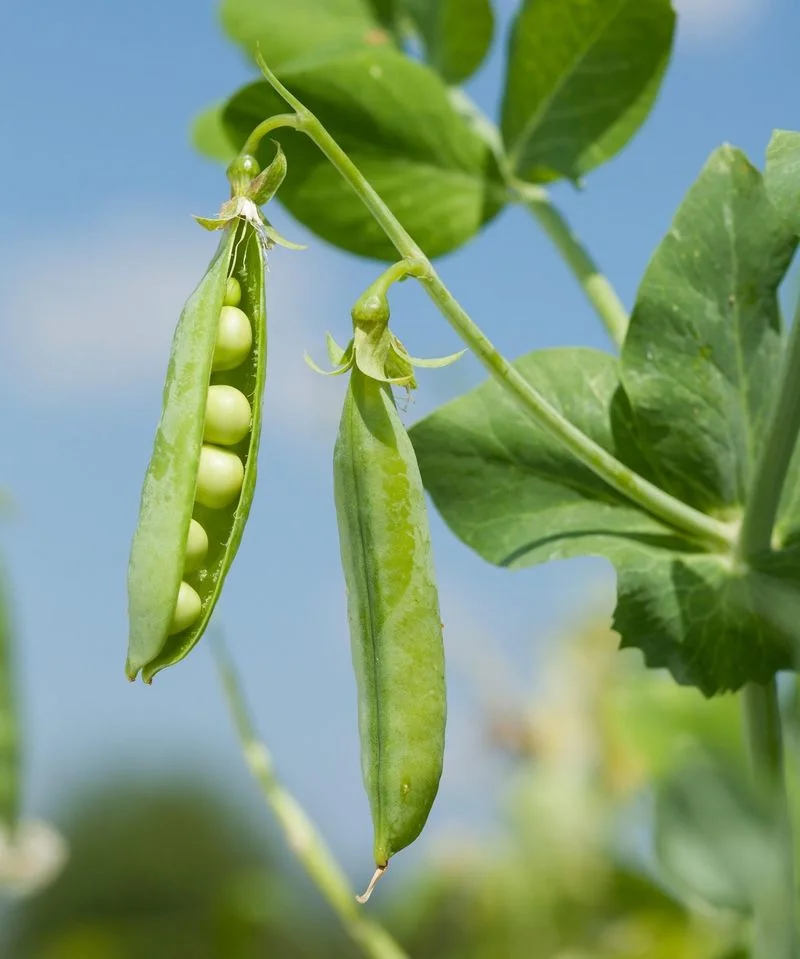
Peas, with their climbing habit, efficiently utilize vertical space when planted alongside Brussels sprouts. As legumes, peas fix nitrogen in the soil, enriching it for the benefit of nearby plants. This nutritional boost supports robust growth in Brussels sprouts. Peas’ delicate vines do not overshadow the Brussels sprouts, ensuring both plants receive adequate sunlight. By incorporating peas, you create a dynamic garden ecosystem that maximizes space and improves soil fertility, supporting a thriving garden environment that nurtures both species.
Radishes
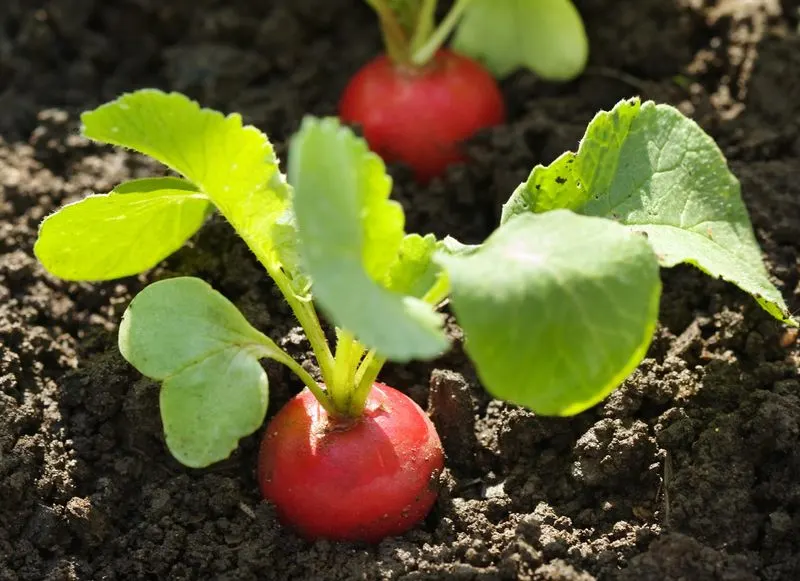
Radishes, known for their quick growth cycle, make excellent companions for Brussels sprouts. They break soil crusts, improving aeration and water absorption. Harvesting radishes early frees up space, allowing Brussels sprouts to expand as they mature. Their fast-growing nature means they don’t compete long-term for nutrients. Additionally, radishes can act as a trap crop, drawing pests away from Brussels sprouts. This partnership not only optimizes garden space but also enhances the health and productivity of Brussels sprouts, offering a practical and efficient garden solution.
Marigolds
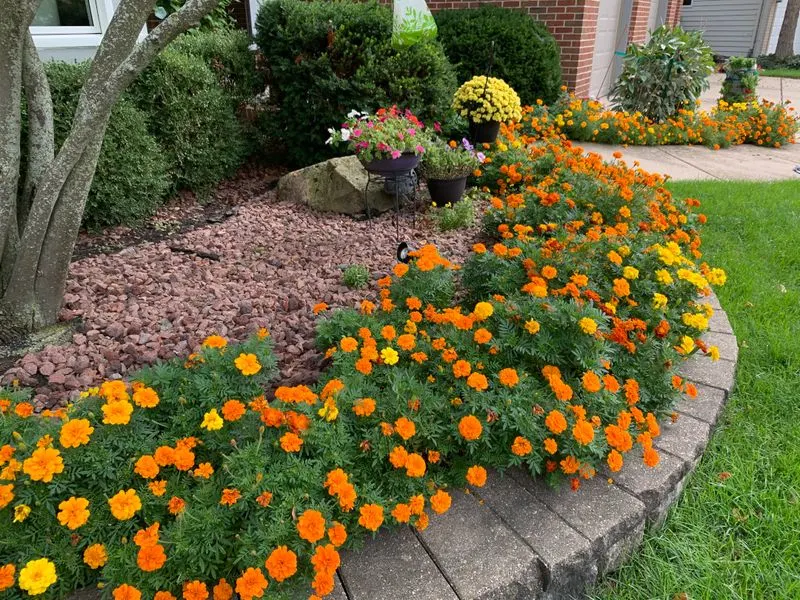
Marigolds, with their bright blooms, serve both an aesthetic and functional role in the garden. Their presence deters nematodes, pests that can damage Brussels sprouts’ roots. By planting marigolds, you create a natural barrier, enhancing the resilience of your garden. Additionally, marigolds attract beneficial insects that prey on harmful pests, supporting a balanced ecosystem. This vibrant addition not only protects Brussels sprouts but also adds visual interest, making the garden a more inviting place. Including marigolds enriches the garden both visually and functionally.

